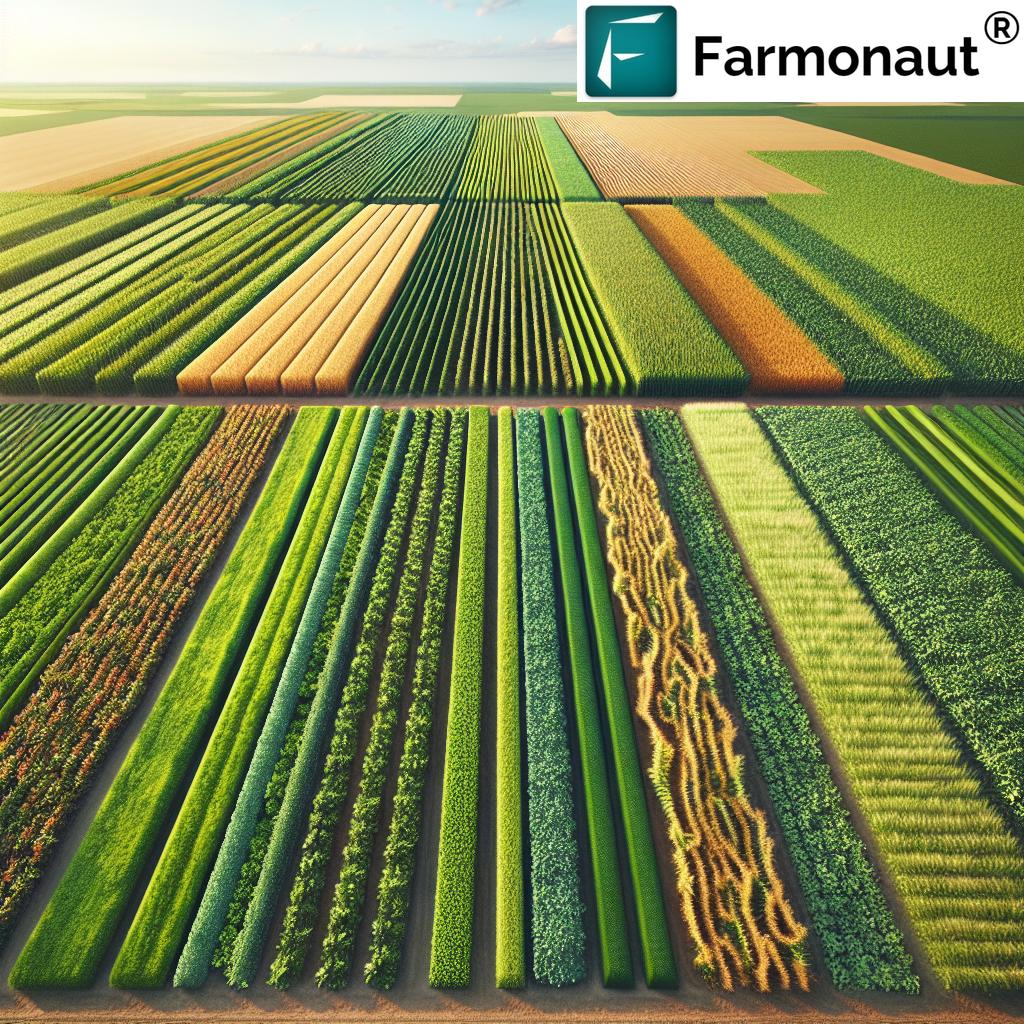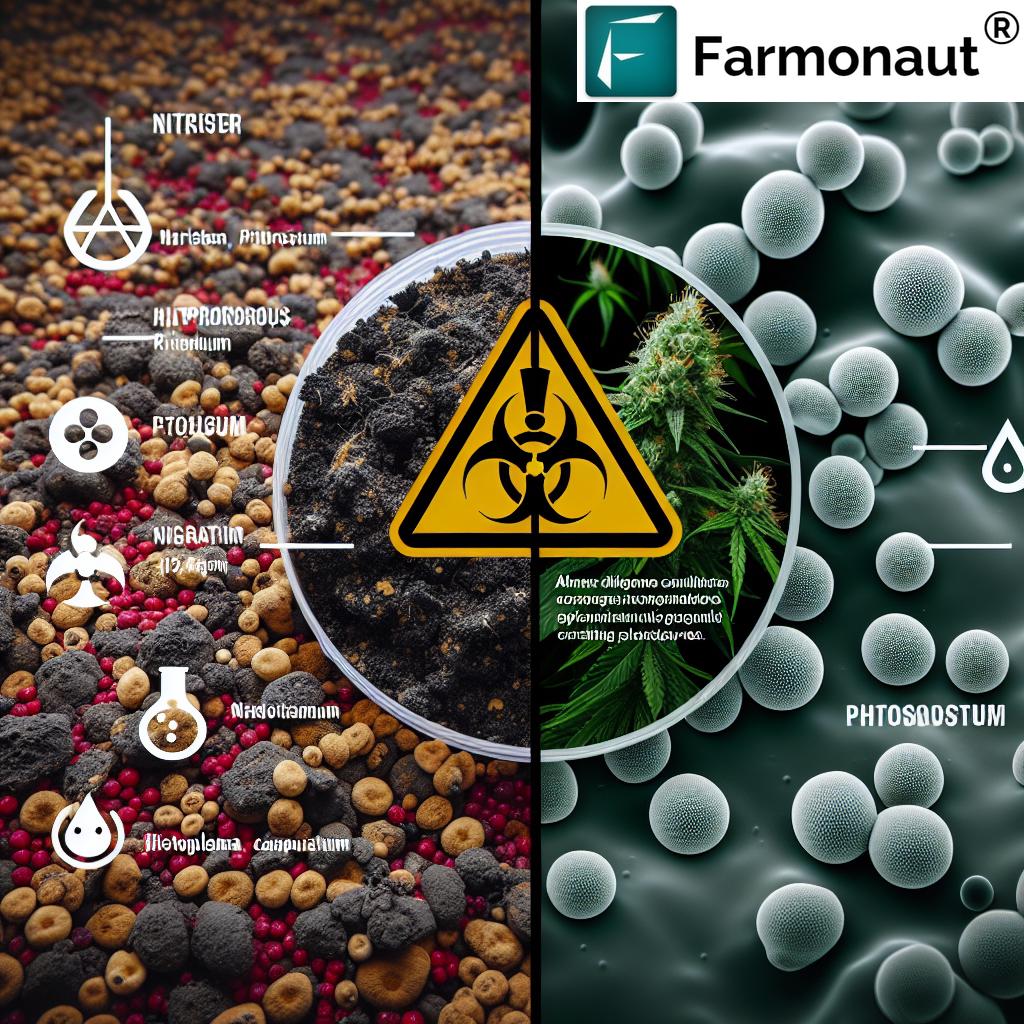Blockchain for Sustainable Agriculture: 7 2025 Innovations
Introduction: The Blockchain Revolution in Agriculture
Agriculture is at the crossroads of digital transformation and climate resilience. As demands for eco-friendly farming, food traceability, and ethical sourcing intensify, advanced technologies are stepping up. Among these, blockchain for sustainable agriculture has emerged in recent years as a groundbreaking tool driving transparency, data integrity, and sustainability across the entire agricultural supply chain.
By 2025, seven major blockchain innovations are set to transform how we manage our farms, crops, forestry, and food systems. In this article, we’ll explore how blockchain is creating positive environmental change, fostering trust, empowering farmers, and revolutionizing markets. Whether you’re a policymaker, business, grower, or conscious consumer, understanding these trends is key to ensuring a climate-resilient future.
Blockchain and Agriculture: Overview & Why It Matters
At its core, blockchain technology is an immutable, decentralized digital ledger that securely records transactions and activities across multiple computers, eliminating the need for a central authority. This distributed nature establishes trust and transparency, both of which are critical for modern agricultural value chains often plagued by data manipulation, fraud, or opacity.
- Immutable Records: Enhance data integrity as once a record is confirmed, it cannot be altered retroactively.
- Decentralized Verification: No single organization holds or controls the data, preventing tampering or unilateral decisions.
- Transparent Transactions: From seed suppliers to processors and distributors, every transaction is logged, establishing complete traceability.
Given the complexity and diversity of agricultural production and supply chains, blockchain technology provides a secure, efficient way to record events, verify product provenance, and ensure compliance with sustainability initiatives. Its applications range widely, from product certification and climate-smart resource use to transparent financing and streamlined supply chains.
2025 Blockchain in Agriculture Market Dynamics
The blockchain in agriculture market is on a steep adoption curve as we approach 2025. Several drivers are fueling this trajectory:
- Food Safety and Traceability Demand: Consumers, producers, and regulators are increasingly requiring verifiable proof that food products are ethically sourced, grown sustainably, and free from harmful chemicals.
- Rise of Smart Farming & IoT Integration: The convergence of blockchain technology with satellite-based precision agriculture platforms and IoT sensors provides real-time, tamper-proof data on crop health, pest control, and resource use.
- Government Digital Agriculture Initiatives: Countries are embracing digital solutions to achieve sustainability, empower farmers, and boost market efficiency.
- Certification & Compliance: Blockchain platforms automate verification of organic, fair-trade, or carbon-neutral claims.
- Financial Services Transformation: With blockchain-enabled financing, credit access for farmers is improving as transparent records reduce fraud risks.
Market analysts project double-digit annual growth rates for blockchain-based agricultural applications, especially in crop management, fleet/vehicle monitoring, supply chain management, and crop insurance verification.
Comparison Table: 7 Blockchain Innovations for Sustainable Agriculture in 2025
Blockchain Traceability for Sustainable Agriculture
In the race towards sustainable farming, traceability takes center stage. Producers, consumers, and regulators alike demand proof that agricultural products are grown using environmentally sound methods, free from harmful chemicals, and support ethical labor.
How Blockchain Enables End-to-End Traceability
- Every stage recorded: Blockchain logs granular data on seed variety, methods, pesticide usage, water consumption, harvest timelines, and shipping conditions. This information is immutable and independently verifiable.
- Consumer trust: By scanning a QR code on packaging, buyers can access a blockchain-backed record of a product’s journey—from the farm to the shelf.
- Proof for regulators: Certification, compliance, and carbon reporting become streamlined, and fraud is minimized.
- Biodiversity & climate tracking: Blockchain helps monitor carbon footprints, sustainable land use, and biodiversity conservation initiatives.
This shift is driving a new age of transparency and accountability. Farmonaut’s traceability solutions, for example, harness blockchain to empower sustainable supply chains and enhance trust throughout the market.
Key Use Cases & Applications of Blockchain in Agriculture
The use of blockchain in agriculture covers a diverse range of practical applications. Here, we highlight the seven most impactful innovations expected to dominate by 2025.
-
End-to-End Product Traceability
Blockchain traceability for sustainable agriculture makes each step of the food journey—from seed to shelf—visible and verified.
Eco-benefits: Reduces food fraud, strengthens sustainability claims, and encourages responsible farming practices.
Learn how Farmonaut’s blockchain-based traceability empowers supply chain transparency.
-
Smart Contracts for Agricultural Transactions
Smart contracts are self-executing agreements coded onto blockchains. These automate payments, enforce delivery deadlines, and ensure that conditions—like crop quality—are met.
Example use: A farmer is paid automatically once a processor confirms the delivery of crops matching pre-agreed sustainability certifications. -
Blockchain-Powered Carbon Footprinting
As pressure mounts to meet global climate targets, tracking carbon emissions at the farm and forest level is vital. Blockchain stores real-time data on energy, fertilizer, and transport emissions.
Sustainability impact: Provides hard evidence for emissions reductions and enables farmers and suppliers to access carbon markets.Explore Farmonaut’s carbon footprinting tool for sustainable compliance and reporting.
-
Automated Compliance, Certification & Audit Trails
Blockchain solutions simplify the complex processes of certification, auditing, and reporting for organic and fair-trade produce. Each input, from seeds to pesticide applications, is transparently recorded and linked to globally recognized standards.
-
Sustainable Resource Management
By integrating blockchain with IoT and AI, farmers gain deeper insights into soil health, water usage, crop status, and equipment performance. These decentralized records help optimize resource allocation.
Eco-benefit: Reduces wastage of water, fertilizers, and mechanical inputs—preserving environment and boosting efficiency. -
Blockchain-Enabled Financing & Crop Insurance
Transparent, blockchain-secured farm data provides the proof banks and insurers need to offer affordable loans and quick, fair insurance payouts.
Example: When disaster strikes, a blockchain record of crop condition and weather can reduce fraud and speed up claims. -
Decentralized Forest Conservation & Carbon Trading
Blockchain solutions help agents and land managers track timber harvesting, monitor reforestation, and verify conservation compliance. They also power robust carbon credit trading mechanisms that benefit both climate and local communities.
Discover how Farmonaut’s tools support forest-based climate initiatives and eco-credit reporting.
Forestry & Agroforestry: Blockchain for Sustainability and Conservation
Forestry and agroforestry are critical in battling climate change, but face persistent sustainability and data verification challenges. By 2025, blockchain for sustainable agriculture will increasingly power forestry management, providing transparent records for:
- Timber Harvesting: Ensuring legality and sustainability via blockchain-backed provenance tracking.
- Reforestation Audits: Immutable digital records of planting, species diversity, and long-term carbon sequestration metrics.
- Compliance Monitoring: Verifying that land practices meet conservation rules and carbon market standards.
- Carbon Credit Trading: Transparent, fraud-proof transactions for verified emissions reduction and forest carbon sequestration projects.
2025 and Beyond: Blockchain Trends Shaping Sustainable Agriculture
These trends highlight blockchain’s role as a fundamental enabler of sustainable, efficient, and transparent agricultural systems—driven by the need to meet global climate and food security targets.
Farmonaut’s Role in Blockchain for Sustainable Agriculture
As agricultural innovators, we at Farmonaut are committed to accelerating climate-smart, data-driven farming—empowering farmers and agribusinesses to thrive in a transparent world. Our platform offers a suite of blockchain-based solutions deeply aligned with the principles of sustainability and traceability for the global agricultural sector:
-
Satellite-Powered Crop Health Monitoring:
Our system delivers real-time remote sensing insights on crop health, vegetation status, and soil moisture—enabling proactive resource management for sustainable yield optimization. -
AI Advisory with Blockchain Integration:
With Jeevn AI, we personalize farm advisory based on satellite and sensor inputs, with every activity securely recorded on immutable blockchain ledgers. -
Supply Chain Traceability:
Leveraging blockchain, we enable transparent, secure product provenance for multiple agricultural sectors. Our traceability tools help verify organic, fair-trade, and carbon-neutral credentials—reducing fraud and enhancing trust among both consumers and corporate clients. -
Fleet and Resource Management:
We optimize field operations, logistics, and resource allocation—all backed by blockchain proofs of usage and compliance. -
Carbon Footprinting:
Our carbon monitoring features not only meet climate reporting needs, but incentivize continuous sustainability improvements across farms and forestry. -
Affordable, Scalable Access:
Our web, mobile, and API platforms ensure that farmers of any scale can access affordable precision agriculture without hardware investments. -
Integration & APIs:
Integrate Farmonaut’s blockchain, satellite, and weather data into your own systems via robust APIs.
See our API developer docs for seamless integration.
Challenges in Adopting Blockchain for Sustainable Agriculture
While blockchain for sustainable agriculture offers transformative potential, several challenges must be addressed to achieve wide-scale adoption:
- Digital Literacy: Many farmers, especially in emerging markets, require education and support to use digital and blockchain tools.
- Infrastructure Gaps: Reliable internet and device access remain uneven in rural areas, limiting the reach of blockchain solutions.
- Data Privacy: Secure handling of farm activity and personal data is critical—especially as records become more accessible.
- Interoperability: For maximum impact, blockchain systems must be able to exchange data across platforms, borders, and industries.
- Regulation & Standardization: Clear, global standards for blockchain-based certifications, carbon credits, and supply chain compliance are only now emerging.
- Cost: Although platforms like Farmonaut lower barriers, upfront investments in tech or transition still present hurdles.
Overcoming these barriers requires joint effort from governments, technology providers, and the agricultural community. As blockchain solutions scale, best practices and supportive policies will accelerate the transition to climate-resilient, transparent agriculture.
FAQ: Blockchain for Sustainable Agriculture
What is blockchain in agriculture?
Blockchain in agriculture refers to the use of decentralized, immutable digital ledgers to record, verify, and share farm data, supply chain transactions, and product provenance. This technology enhances transparency, traceability, and sustainability throughout agricultural operations.
How does blockchain traceability for sustainable agriculture reduce food fraud?
By recording every production, processing, and distribution step as a tamper-proof blockchain entry, food fraud becomes difficult—if not impossible—since product journey data is visible and verifiable for all stakeholders.
How do smart contracts work in agricultural blockchain applications?
Smart contracts are self-executing agreements with predefined rules. In agriculture, they automate payment releases, enforce delivery and quality milestones, and minimize disputes or resource wastage.
What is the role of blockchain in forestry and conservation?
Blockchain technology tracks timber origin, verifies sustainable management practices, audits reforestation, and supports carbon credit markets. It increases accountability and discourages illegal activities.
Can smallholder farmers benefit from blockchain?
Yes, blockchain reduces fraud, enables better access to financing, and opens new market opportunities by providing proof of sustainable practices, fair pay, and crop certification. Affordable platforms like Farmonaut are making these benefits accessible globally.
How can I get started with blockchain-based sustainable agriculture tools?
Using platforms like Farmonaut, you can begin tracking farm resources, crop health, and product journeys on blockchain on any scale. These insights drive sustainable management and supply chain value.
Start by exploring the Farmonaut web and mobile apps.
Conclusion: A Greener, Transparent Future for Agriculture
Looking to 2025 and beyond, blockchain for sustainable agriculture is more than a buzzword—it is a paradigm shift, reshaping how we define trust, efficiency, and eco-friendly production in farming and forestry. The seven major innovations we’ve outlined promise profound impacts on supply chain transparency, market operations, resource management, and environmental stewardship.
While challenges remain, the trajectory is clear: advanced blockchain solutions, accessible through platforms like Farmonaut, will be fundamental for achieving global sustainability and climate resilience. By supporting transparent, data-driven decision-making, we can ensure not only food security and fair trade, but a healthier planet for generations to come.
Begin your sustainable agriculture journey with Farmonaut’s blockchain and satellite insights—visit our web and mobile apps, and join the movement building the transparent, green food systems of the future.










